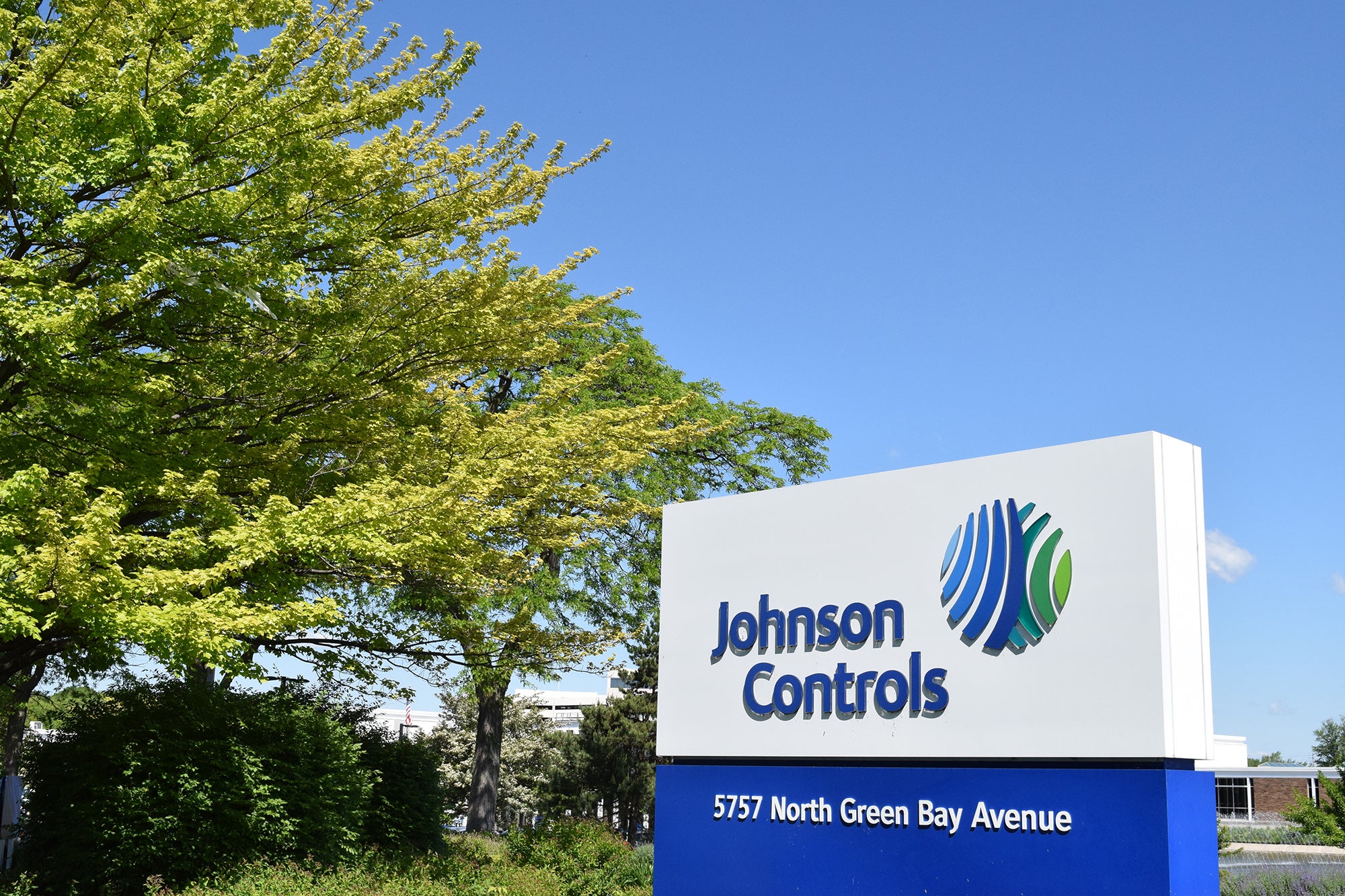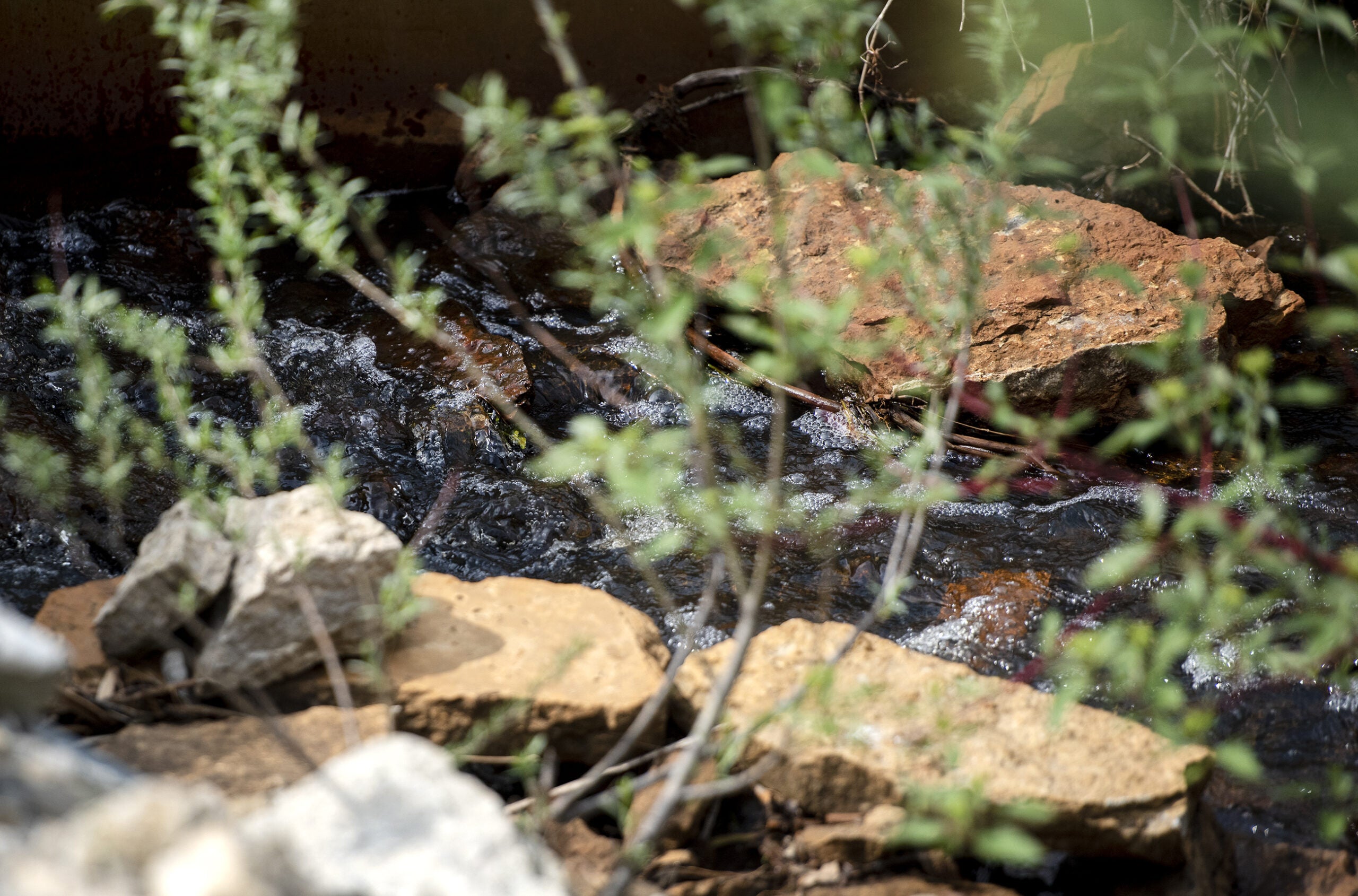A Marinette manufacturer of firefighting foam is cleaning up a spill of contaminated water containing arsenic and so-called “forever chemicals” known as PFAS.
Tyco Fire Products, part of Johnson Controls International, reported the spill to the Wisconsin Department of Natural Resources on Sunday around 9 p.m., according to a DNR release.
Company officials said a mixture of river water and contaminated groundwater at its 1 Stanton St. facility was accidentally released, making its way into storm water drains that flow into the Menominee River.
Stay informed on the latest news
Sign up for WPR’s email newsletter.
A spokesperson for Johnson Controls said they promptly notified the agency of a water line break that occurred on Sunday.
“This water line brings water to our facility from the Menominee River. We quickly turned off the water line and immediately put in place appropriate, best-in-class measures to contain and capture the water,” said spokesperson Fraser Engerman in a statement. “Based on our early analysis, there was a very limited amount of water that went into the storm drain that connects back to the Menominee River. We will continue to communicate with the WDNR on this issue and clean up any remaining water from this break.”
The company is recovering water from the site and storing it in tanks. The agency is monitoring the cleanup and said no further details are available at this time.
Perfluoroalkyl and polyfluoroalkyl substances, or PFAS, have raised concerns because they don’t break down easily in the environment. They’ve also been linked to health problems, including some cancers.
Johnson Controls and Tyco are the subject of an ongoing investigation into PFAS contamination stemming from its fire training facility in Marinette.
Tyco has conducted PFAS sampling on more than 250 drinking water wells in the Marinette area, saying most wells have turned up no trace of the chemicals. Around three-dozen wells have PFAS levels beyond the state’s recommended groundwater enforcement standard of 20 parts per trillion to protect public health. There is no federal standard for PFAS although the U.S. Environmental Protection Agency has issued a health advisory level of 70 parts per trillion.
The company has refused the DNR’s requests to expand well testing, saying there’s no evidence contamination has spread to the south and west of its facility. The agency has informed the company it plans to conduct the sampling and recover costs from Tyco and Johnson Controls. Tyco said the DNR should identify other responsible parties for contamination as it conducts testing.
Tyco also resumed well sampling this spring near farm fields where biosolids or sewage sludge contaminated with PFAS had been spread, although it denies any responsibility for contamination there.
Johnson Controls has also provided bottled water to more than 140 residents since late 2017 and installed 40 water treatment systems in homes with elevated PFAS levels. Tyco has spent more than $3 million to help the city of Marinette dispose of contaminated sewage sludge.
The company has also spent $1 million in improvements to its sewer lines running to the city’s wastewater treatment plant. Tyco has also committed to roughly $10 million to construct a municipal water line to provide safe drinking water.
Last year, Johnson Controls said it set aside $140 million for cleanup of pollution from firefighting foam at its properties.
The DNR referred Johnson Controls and Tyco to the Wisconsin Department of Justice in May 2019 for failing to report any release of PFAS when it was first discovered in 2013. Company officials have said they believed contamination had been confined to the site of its facility.
Editor’s note: This story was updated with comment from Johnson Controls on Tuesday, July 28, 2020 at 1:53 p.m.
Wisconsin Public Radio, © Copyright 2025, Board of Regents of the University of Wisconsin System and Wisconsin Educational Communications Board.




